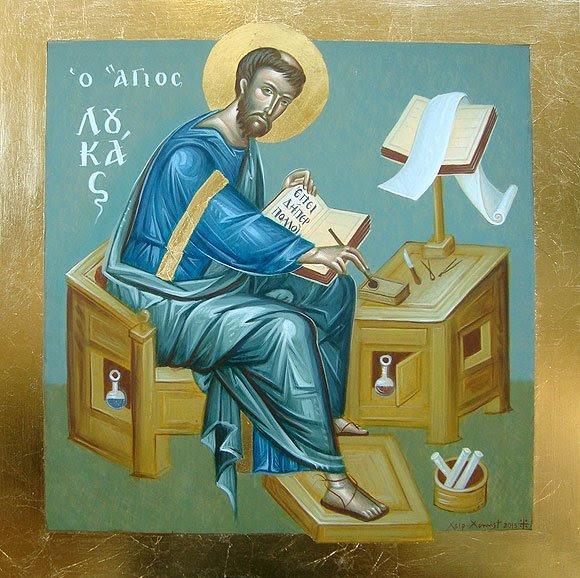| The Book of Acts 1: 1 – 2 “In the first book, O Theophilus, I have dealt with all that Jesus began to do and teach, until the day he was taken up, after he had given commandment through the Holy Spirit to the apostles whom he had chosen.” Eastertide begins on Easter Day and continues for 50 festal days in liturgical observance of Christ’s resurrection. This may be the least outwardly jubilant Easter Season many of us have experienced! Joy remains, however, for us to seize and lay hold of. The presence of God and the peace of Christ have often been most deeply experienced by Christians through the ages in times of challenge. These daily reflections are intended to offer parish-specific fodder to claim Eastertide during the COVID-19 sequester. These reflections aren’t meant as Scripture study…though that is the format we will loosely follow; they are meant to encourage. During Easter Week we focused on the appointed lessons for those days, centered on the resurrection narratives. Now, during the second week of Easter and forward, I will work though a daily reading from the Book of Acts. The Book of Acts is the story of the formation of the nascent Christian community, the Church, in the wake of Jesus’ resurrection. God’s work in Christ was not completed by Christ’s resurrection; only begun…“for all things in heaven and earth will be brought together in Christ,” as St. Paul says in Ephesians 1: 10. The Book of Acts contains our story, as the seed which flowered in the life, death and resurrection of Jesus continues to grow, and we are part of that flowering. The Acts of the Apostles was written sometime between 70 A.D. and 100 A.D. by the same author who wrote the Gospel of Luke. St. Paul mentions a fellow worker named Luke in Philemon 24, and Luke / Acts has been traditionally ascribed to this figure, though most scholars think that unlikely. Because we will never know, and for convenience sake, we’ll call the author “Luke” in accordance with tradition. It is this “first book,” the Gospel of Luke, to which Luke refers as he begins the Book of Acts. He is addressing “Theophilus.” Theophilus may have been an actual person…some versions refer to “Excellent Theophilus,” causing some scholars to consider that he was a person of high status. But “Theophilus” in Greek, means, in English, “lover of God.” I like that take. Luke is writing to a “lover of God” who does not yet know much about the life and ministry of Jesus. As Jesus met Thomas in Sunday’s Gospel for Easter Two, Jesus speaks to Thomas using an out-of-place Beatitude. “Have you believed because you have seen me?” Jesus says to Thomas, “Blessed are those who have not seen and yet have come to believe.” Jesus implies a process when he says ‘those who have come to believe.’ Belief, confidence, trust…isn’t something that necessarily happens all at once. Trust in God, and confidence in God in Christ, generally arrive as unfolding process. Theophilus already loves God, and is hungry to better know the one whom he loves. Luke assists by telling the story of Jesus, and of the flowering of the resurrection among people like Theophilus, who love God and wish more and more to know and love him. You, for my purposes, are Theophilus. You already love God, and you desire to love God yet more each day. Luke has written this Book of Acts to you, and we will read it together to see how the ripples of Jesus’ resurrection began to shape a new community. Grace and peace, Canon George F. Woodward III In the Morning “This is another day, O Lord. I do not know what it will bring forth, but make me ready, Lord, for whatever it may be. If I am to stand up, help me to stand bravely. If I am to sit still, help me to sit quietly. If I am to lie low, help me to do it patiently. And if I am to do nothing, let me do it gallantly. Make these words more than words, and give me the Spirit of Jesus. Amen.” BCP page 461 |

| St. Paul’s Anglican Church Calzada del Cardo, 6 Centro 37700, San Miguel de Allende, Mexico 415.121.3424 www.StPaulSMA.com |

